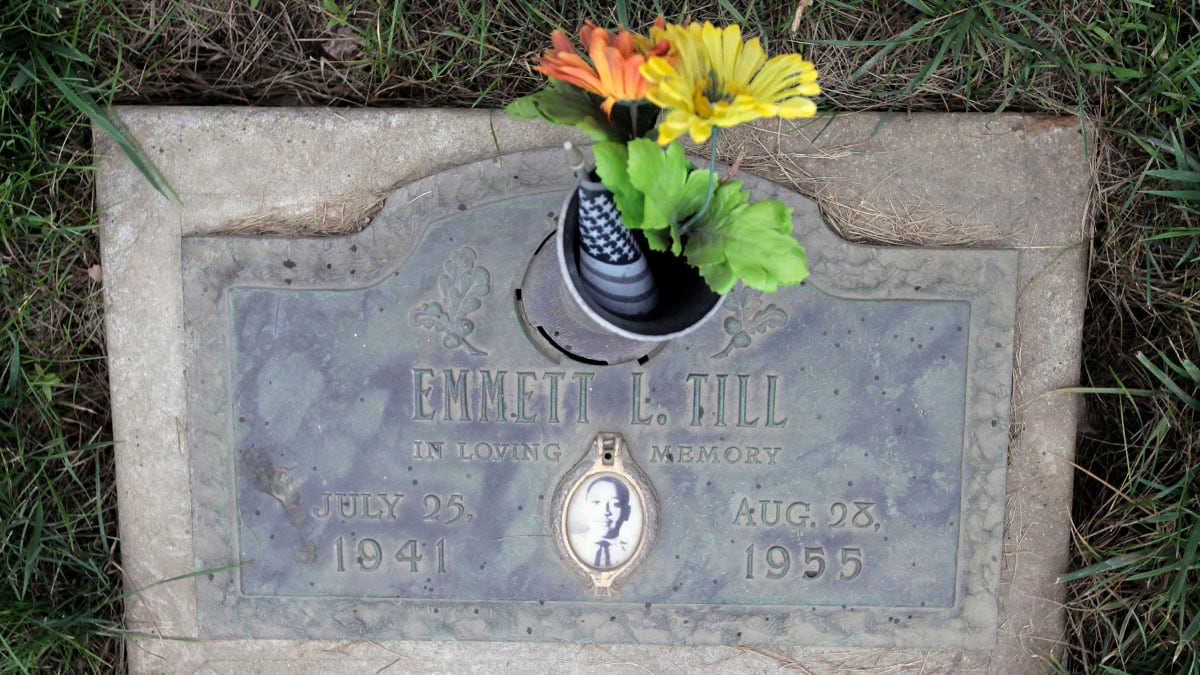Okay, I’ll admit it: I love listening to A Prairie Home Companion, Garrison Keillor’s public-radio program. While urban blacks are probably not the demographic the show is designed for, its humor is universal, always topical and usually purposefully corny. And while I wouldn’t care to listen to a steady diet of its featured country and bluegrass music, my tastes are diverse enough for an hour.

This does not mean I sit by my radio waiting for the show to air, but if I’m in my pickup truck, and it’s Saturday evening at 6, well—in spite of the fact that my wife gives me the fisheye if she’s with me—I’m going to be tuned in.
This past weekend, as I was driving home alone from Columbus, Ohio, Emmylou Harris was one the musical guests on the show, which was being broadcast live from Ryman Auditorium in Nashville. After chatting a bit with Keillor, she strummed her guitar and began to sing a ballad, “My Name is Emmett Till”:
I was born a black boyMy name is Emmett TillWalked this earth for 14 yearsOne night I was killed
For speaking to a womanWhose skin was white as doughThat’s a sin in MississippiBut how was I to know?
I’ve heard country music described as those “somebody-done-somebody-wrong songs,” and this song certainly fit the bill. Harris’s plaintive and well-seasoned voice captured the terrifyingly sad story of the “cheeky” man-child from Chicago who visited his relatives in Mississippi back in 1955 and was done so horribly wrong.
In her lyrics, Harris wove a harrowing tale: Till, not knowing the racial rules of the Deep South, flirted with a white woman at local grocery store. The woman’s husband and half-brother kidnapped the boy from his Uncle Moses Wright’s home, castrated him and gouged out one of his eyes before shooting him. They weighed his body down and dumped it in the Tallahatchie River. When his corpse was discovered and taken back to Chicago for burial, Emmett’s mother, Mamie, demanded the casket be left open, thereby forcing the world to look at what hatred and Southern tradition had done to her baby boy. The world steeled itself, looked, and responded.
Lines of mourners snaked through the streets of Chicago for days. Tens of thousands of people—black and white—walked past the casket, many sobbing, fainting, or turning away in revulsion from a face so badly savaged it was no longer recognizably human. Every black newspaper and magazine in the country carried the gruesome casket photo on its cover, making the incident the pivotal moment in the nascent civil-rights movement. Indeed, many historians now say those images marked the real beginning of what the Rev. Dr. Martin Luther King would later lead. Sometimes it takes a dead child to start a movement.
I was 12 years old at the time, and the photo haunted my dreams for weeks. At 13, two friends and I convinced our parents to let us to take a Greyhound bus to Louisville to visit my aunts and uncles. When we arrived at the bus terminal there, the first thing we spotted were the drinking fountains marked “White” and “colored.” (You read that right: “colored” was not capitalized on the ragged sign above the decrepit fountain—that would have denoted too much respect.) We were so afraid we caught the first bus back to Cleveland. It was my first time below the “Cotton Curtain,” and I wasn’t going back anytime soon.
But 56 years later, I listened, transfixed, as Emmylou Harris sang her version of the story with heartbreaking tenderness, and I was awestruck that a 65-year-old white woman, born and bred in Alabama, would have the compassion and the courage to perform this song in front of a country-and-western audience—in Nashville no less. Her sincere voice and remarkable words evoked such long-ago memories that I could feel a huge lump in my throat.
They say the horror of that night Is haunting heaven still Where I am one more black boy My name is Emmett Till
When Harris finished singing, the applause (from what I’m sure was a 99.9% white crowd) was so thunderous and sustained it made me realize how very far some whites have come in terms of their desire for real racial conciliation. Upon this realization, as hard as I tried, I could no longer fight back the tears.





